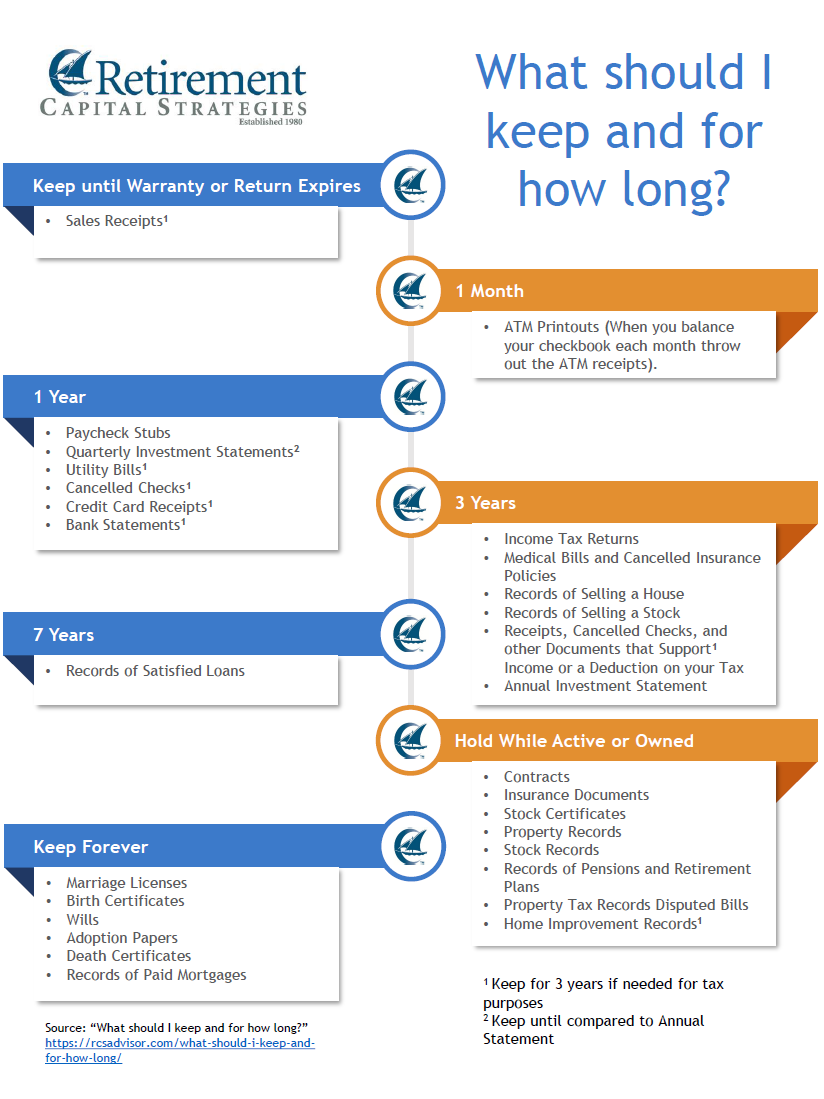It’s important to know what records to keep. None of us wants to be inundated with unnecessary paper piles, but we certainly don’t want to throw away something important. In addition, every document with an account number or other vital information is a risk exposure for identity theft. Save what you need securely and safely shred the rest. But how do you decide which records you need to keep? As with everything in financial planning, it depends. We created a general infographic to help.
Electronic Record-Keeping - The Internal Revenue Service permits you to keep your statements in electronic format. An electronic record storage system must be able to index, preserve, retrieve, and reproduce accurate copy records. The IRS retention guidelines for electronic records are the same as for paper records.1

The infographic covers most situations, but there may be other variables unique to your circumstance.
Keep Until Warranty or Return Period Expires – Sales receipts used for tax purposes should be kept for at least three years.2
1 Year – For Paystubs and Quarterly Investment Statements- these should be kept until compared to yearly documents like a W-2 and Annual Statements. Other records should be kept for one year unless used for tax purposes.3
3 Years – Income Tax Returns should be kept for three years in case of an IRS audit. If you omit 25% of your gross income, it goes up to six years. There is no statute of limitation if no return is filed.2
Hold While Active or Owned – For home improvement records- keep these for at least three years after the tax year in which the property was sold.2
Keep Forever – For these records, you should keep them in a very safe place like a safety deposit box.
Sources:
1 “Rev. Proc. 97–22” https://www.irs.gov/pub/irs-tege/rp-97-22.pdf
2“Topic No. 305 Recordkeeping” https://www.irs.gov/taxtopics/tc305
3 “Save or Shred: How Long You Should Keep Financial Documents” https://www.finra.org/investors/insights/save-or-shred-how-long-you-should-keep-financial-documents
